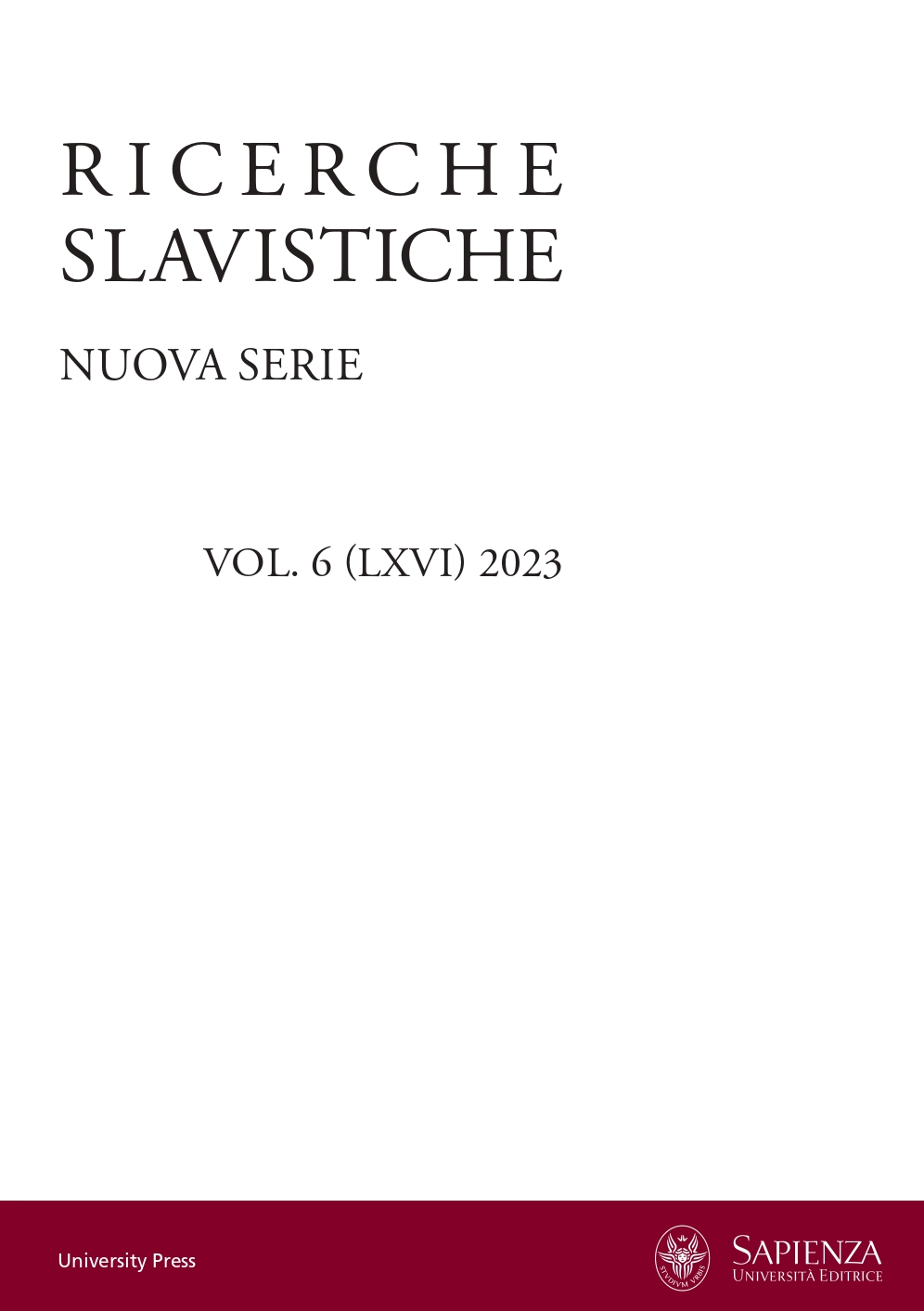Ivan Wernisch and his poetics of “subtractions”
Keywords:
Ivan Wernisch, Czech literature, poetry, translation, Central Europe, CzechoslovakiaAbstract
Ivan Wernisch is one of the most significant and influential Czech writers of the second half of the twentieth century. He is also a sui generis translator who, during the years of normalization, began to use translation as a replacement for his own writing when he could not publish officially. He began to include his original poems in the translations he was preparing for Czechoslovakian radio, attributing them to other authors, famous or unknown. The fakes created for radio broadcasts can be considered the ancestors of those texts that Wernisch, using a neologism, will define as "překrady" (subtractions): poems, for the construction of which elements borrowed from other authors have been used.Starting from the eighties the "subtractions" become a constant in Wernisch's poetry. In Beránci vlci aneb Marcipán a pumprnikl he deceives his readers and censors by placing his poems into a book officially published as a collection of German folk poetry translations. The collection has a distinctly popular character that coincides with Wernisch's idea of poetry, and it is a mix of playfulness, gaiety, and mockery on the one hand and wistful sadness and anxiety for human destiny on the other. In Frc. Překlady a překrady the centrality of “subtractions” is already made explicit by the title. It is a peculiar tribute to modern European poetry elaborated in a mysterious way: here it is not possible to recognize which text is a translation and which text is a subtraction, it is necessary to understand that poetry is one and only one. Frc itself can and must be read as a single poem following a path that leads from the lightheartedness and joy of the game to the apocalypse and death.In Wernisch's “překrady” it is not clear how close the connection between the original and the newly born text is, the source texts are just an inspiring impetus for the creation of new poems. It is therefore not only difficult, but above all irrelevant to establish where the authorship of one writer ends and where the authorship of the other begins. In both collections mentioned, authorship loses its meaning, intertextuality and context are what matters most.Downloads
Published
2024-03-26
Issue
Section
Strange Relations: About the Co-existence of Languages and Cultures in Central and Eastern Europe


